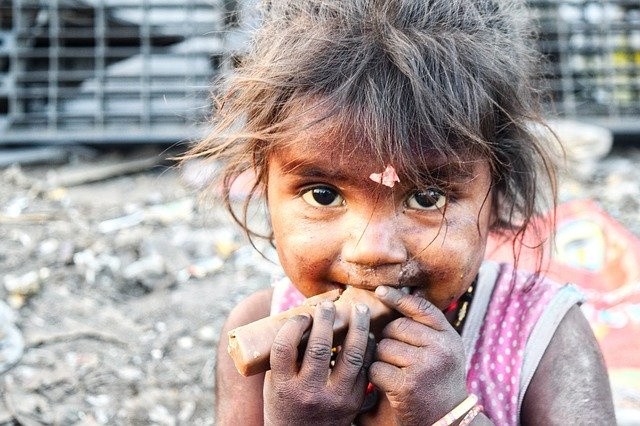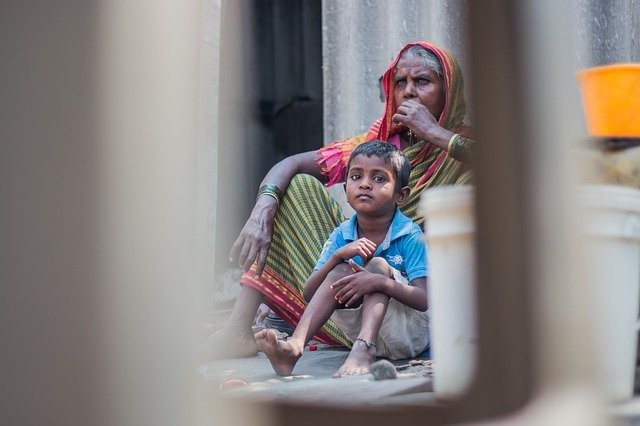
In more typical occasions, many of the children born into these communities are cared for in government-run boarding schools.
In any case, since the epidemic of the novel coronavirus, schools have closed, driving the children to return to their homes, where many find broken families, domestic violence and little to eat.
The children had no choice but to head to a huge town, to ask and search for food. They were saved a couple of weeks ago by the non-benefit Blue Dragon Children's Foundation and are currently being taken care of by a foster family.
Cry of the City
Tourism has declined drastically, whole families have lost their jobs, private companies are closing down and schools have been suspended. Children from poor families in rural regions are currently bound to drop out of school, leaving them vulnerable to child labor and human trafficking.
In the previous month, Blue Dragon's street outreach group had taken 21 homeless children into its care. Part of the reason for this is that the weddings are generally arranged over the Lunar New Year period and this year the occasion was extended, with schools staying shut to prevent the spread of the coronavirus.
Caged Children
On March 16, President Rodrigo Duterte put the whole island of Luzon under lockdown, which is expected to last at least until mid-April. Associations to the capital megacity of Manila were cut off, while classes and non-essential services were suspended.
In the Philippines, Catherine Scerri, deputy director of non-profit group Bahay Tuluyan, says children and families in thickly populated urban regions are the most affected by the coronavirus outbreak. Different gatherings gauge there are somewhere in the range of 250,000 and one million children living in the city of Manila.

Because to the lockdown, Scerri's non-profit group has been not able to give on-the-ground aid. Children and youth and families are engaging for food as they no longer have work. Many of them have gotten no help from the government.
Scerri said that isolation can be extremely devastating for these children who no longer have a way to escape physical, emotional or sexual abuse. At the same time, the Philippines is already a hotspot for online sexual exploitation of children and the risk factors for that are even greater now. The heightened militarization in the Philippines in response to the crisis has made things worse.
Examples of this are children who were caught out after curfew and put in a dog cage, others were made to sit in the hot sun, while another child was made to lie in a coffin for an hour.
Depressed Brides
Pennapa Wuttimanop, a project coordinator at the Alliance Anti Traffic in Thailand said, "victims are becoming invisible because brothels are closed and those in forced marriages have been confined in the houses of their husbands," where more than 1,650 coronavirus cases have been confirmed.
Wuttimanop, who works mostly with human trafficking survivors from Laos, Myanmar, and Thailand, says rescuing women trafficked into forced marriages in China has gotten more dangerous and about inconceivable. Wuttimanop's non-profit group has made police aware of the instance of the two young ladies who are believed to be in Jiangxi, southeast China. Wuttimanop said, "we think rape and domestic violence will increase,".
No Wage
Wuttimanop warns that prostitution, sexual abuse on the web and sextortion are probably going to develop during the lockdowns. In India, Aaboo Varghese, founder and executive director of Purnata, a non-profit group that visits red-light districts and supports human trafficking survivors, says sexual laborers and different workers who depend on a day by day wage have been hit hard by the coronavirus outbreak
Disheartening Future
Scerri expects the number of homeless children to grow and for vulnerable families to be pushed into further poverty when the lockdown ends in the Philippines. "It's likely that many families who no longer are able to pay their rent or have so much debt will end up on the street, In worst-case scenarios, children may be orphaned by parents dying of COVID-19," she said.
Scerri and Wuttimanop both accept the financial effect will be felt by the locale's most vulnerable people for a long time. The big problems will happen after the coronavirus crisis, Wuttimanop, in Thailand, said.
© 2026 HNGN, All rights reserved. Do not reproduce without permission.








